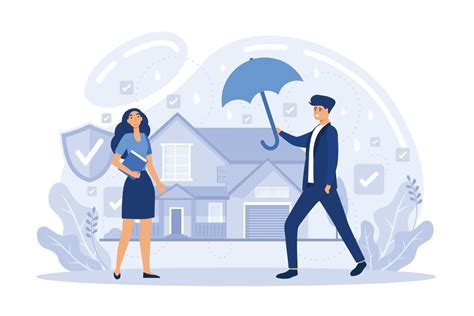Homeowner's Insurance: Protecting Your Interests After an Accident
Accidents happen. Whether it's a tree falling on your house during a storm, a burst pipe causing water damage, or a guest slipping and injuring themselves on your property, unexpected events can significantly impact your life and finances. This is where homeowner's insurance steps in, acting as a crucial safety net to protect your interests and financial well-being. Understanding your policy and how to proceed after an accident is vital. This article will guide you through the process, ensuring you're well-equipped to navigate the aftermath of an unforeseen incident.
What Does Homeowner's Insurance Cover After an Accident?
Homeowner's insurance policies typically cover a range of situations, broadly categorized as property damage and liability. Property damage covers repairs or replacement costs for your home and belongings due to covered perils. These perils can include fire, windstorms, hail, vandalism, theft, and more. The specifics depend on your policy and chosen coverage. Liability coverage, on the other hand, protects you financially if someone is injured on your property or if you accidentally damage someone else's property. This can include medical expenses, legal fees, and settlements.
What to Do Immediately After an Accident on Your Property
The immediate response after an accident significantly impacts your insurance claim. Follow these steps:
- Ensure Safety: Prioritize the safety of everyone involved. Seek medical attention for injuries if necessary.
- Document the Accident: Take photos and videos of the scene, including any damage to property or visible injuries. Note the date, time, and location.
- Gather Information: Collect contact details from witnesses and anyone involved in the accident.
- Report the Accident to Your Insurance Company: Contact your insurance provider as soon as possible to report the incident. Follow their instructions carefully.
- Do Not Admit Fault: Avoid admitting responsibility for the accident, even if you feel you might be at fault. Let your insurance company handle the investigation.
- Preserve Evidence: Do not discard any damaged items or belongings until the insurance adjuster has inspected them.
What Happens During the Insurance Claim Process?
After reporting the accident, your insurance company will likely initiate an investigation. This may involve:
- Claim Assessment: An adjuster will assess the damage and determine the extent of the coverage.
- Documentation Review: They will review your policy, photos, and witness statements.
- Negotiation: You may need to negotiate with the insurance company regarding the settlement amount.
- Repair or Replacement: Once the claim is approved, the insurance company will either cover repairs or replacement costs, depending on your policy.
How to Maximize Your Insurance Coverage After an Accident?
To ensure you receive the maximum benefits from your homeowner's insurance after an accident, consider these points:
- Thorough Policy Review: Regularly review your policy to understand your coverage limits and exclusions.
- Adequate Coverage: Ensure you have sufficient coverage to address potential losses. Underinsurance can leave you with significant out-of-pocket expenses.
- Accurate Documentation: Maintain detailed records of your possessions, including photos and receipts, to facilitate accurate valuation in case of damage or loss.
- Prompt Reporting: Report any accident or damage promptly to prevent delays in the claim process.
- Cooperate with the Adjuster: Provide all necessary information and cooperate fully with the insurance adjuster's investigation.
What if My Claim is Denied?
If your claim is denied, understand the reasons for the denial. Review your policy carefully, and if you believe the denial is unjustified, you can:
- Request a Review: Ask your insurance company to review their decision.
- Mediation: Consider mediation as a way to resolve the dispute.
- Legal Counsel: If all else fails, you may need to consult with a lawyer to pursue further action.
What are the Common Exclusions in Homeowner's Insurance Policies?
It's crucial to know what your homeowner's insurance doesn't cover. Common exclusions include:
- Acts of War: Damage caused by war or terrorism.
- Nuclear Accidents: Damage resulting from nuclear accidents or radiation.
- Intentional Damage: Damage caused deliberately by the homeowner.
- Earthquake or Flood (Usually Requires Separate Coverage): These are often excluded unless you purchase specific endorsements.
- Normal Wear and Tear: Damage caused by gradual deterioration.
How Can I Find the Right Homeowner's Insurance Policy?
Choosing the right homeowner's insurance policy depends on your specific needs and risk profile. Compare quotes from multiple insurers to find the best coverage at a competitive price. Consider factors like your home's value, location, and the level of coverage you require.
By understanding your homeowner's insurance policy and taking proactive steps after an accident, you can safeguard your financial interests and ensure a smoother recovery process. Remember, timely action and clear communication are key to a successful insurance claim.

